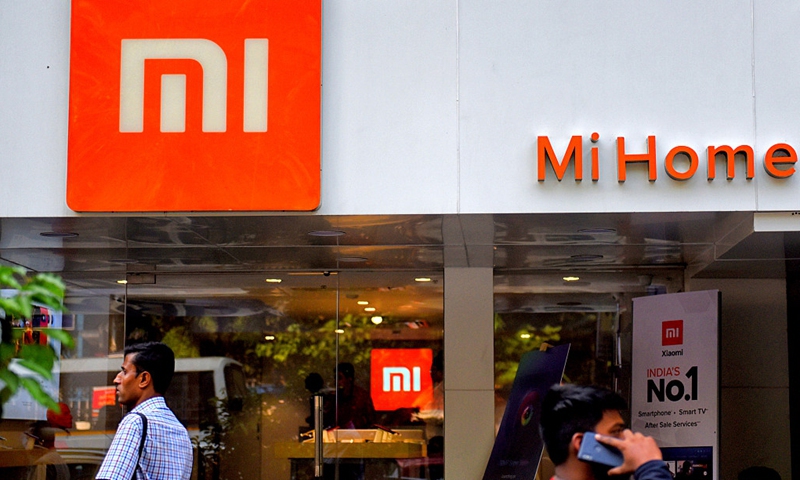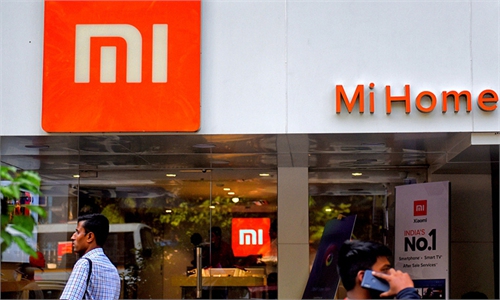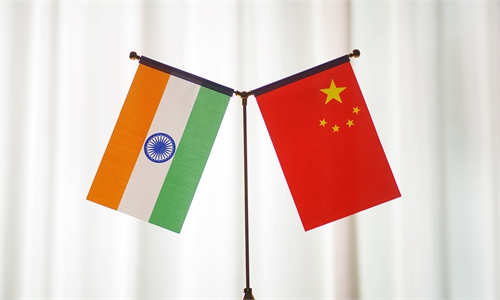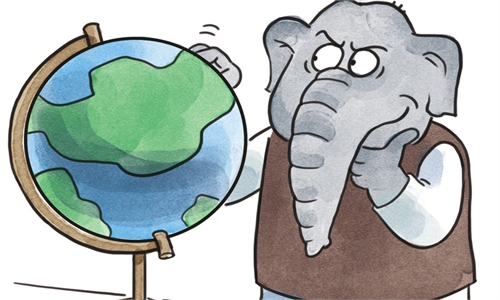India’s reckless assault on Chinese firms to impede its own economic progress: experts
Risk mitigation a priority for businesses operating in India: expert

Xiaomi India Photo: VCG
Driven by rising protectionism, India seems to have hardened crackdown on Chinese companies, by detaining an employee of major Chinese smartphone maker Vivo lately.
Experts said that India's consistently ill-intended effort to curtail Chinese firms has become a recurring trend in recent years, which will ultimately jeopardize its own enterprises and impede its economic growth.
"Vivo in India strictly adheres to local laws and regulations. We are closely monitoring the recent investigation and will take all possible legal measures to address it," Vivo told the Global Times on Wednesday, responding to the news that India had arrested Vivo executives for alleged money laundering.
Among four individuals involved in the current investigation in India, only one is a Vivo employee, the Global Times learned from anonymous sources.
Though details of the case were not immediately clear, it is not news that the India always comes up with baseless excuses to bully Chinese firms in the country, experts said.
"It has become a recurring fact in recent years, with Chinese smartphone vendors bearing the brunt of the reckless assaults in India," Liu Zongyi, secretary-general of the Research Center for China-South Asia Cooperation at the Shanghai Institutes for International Studies, told the Global Times on Wednesday.
Days ago, Indian police accused Chinese smartphone makers Xiaomi and Vivo of helping transfer funds illegally to a news portal under probe on charges of "spreading Chinese propaganda," Reuters reported.
Xiaomi on Saturday refuted the accusation, saying that the company "conducts its business operations with utmost respect to, and in strict compliance of, applicable laws. Any allegation of conspiracy is completely baseless."
Chinese smartphone makers have helped build up industrial chains in India in recent years, but now New Delhi may think that it could replace Chinese companies and cultivate its own manufacturers, Liu said.
Such moves would worsen India's business climate and ultimately backfire and take a toll on the long-term advance of its own economy, Bao Jianyun, director of the Center for International Political Economy Studies at Renmin University of China, told the Global Times on Wednesday.
The situation will undoubtedly hinder normal economic and trade exchanges between China and India, Bao noted, stressing that Chinese companies operating in the Indian market should have comprehensive risk management strategies so as to protect their lawful rights and interests.
Against the backdrop of the US' attempting to contain China's development through a reckless technology war, India started to consider it as an opportunity that it could seize and allow it to replace China's role in the global industrial chain, Liu said.
But that's impossible as the South Asian country still relies on China in industrial chains, especially the supply of intermediate goods, Liu said, noting that if India really wants to decouple from China, it will be a huge blow to its manufacturing and foreign trade sectors.
India's imports from China across at least 25 major commodity groups such as consumer electronics, auto components, and iron and steel products rose in fiscal 2023, Reuters reported in August, citing India's official data.
India's trade gap with China widened 13.5 percent year-on-year in fiscal 2023, according to the report.
Chinese smartphone makers, with their comprehensive advantages in the industry, will not have their long-term global development prospects dampened by the setback in India. "It is not necessarily a completely bad thing as such setbacks could drive them to enhance their anti-risk capability and strengthen their core competitiveness," Bao said.



